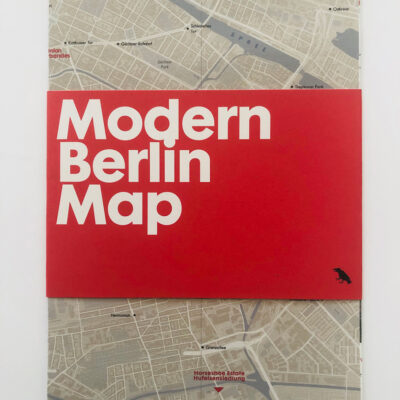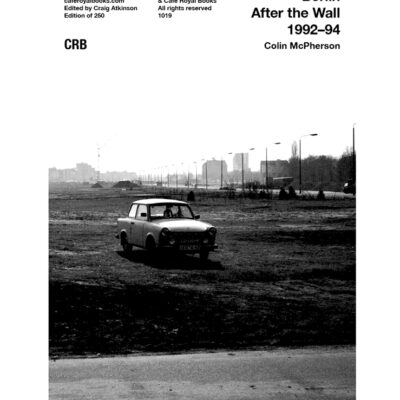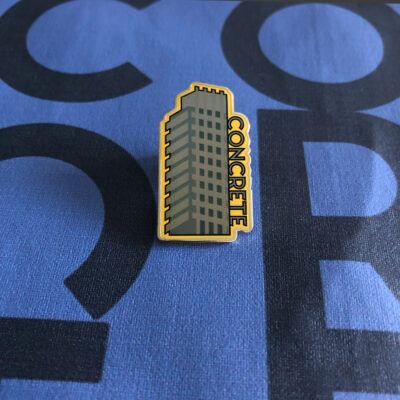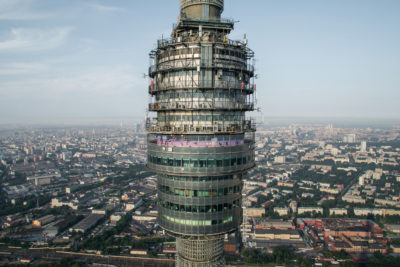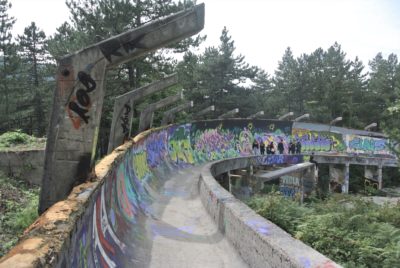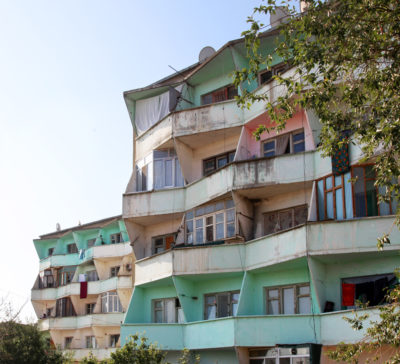A Love Affair with Soviet Bus Stops
Photographer, Peter Ortner got more than he bargained for on his Uzbek road trip, a life-long devotion to Soviet architecture and the documenting of Soviet bus stops
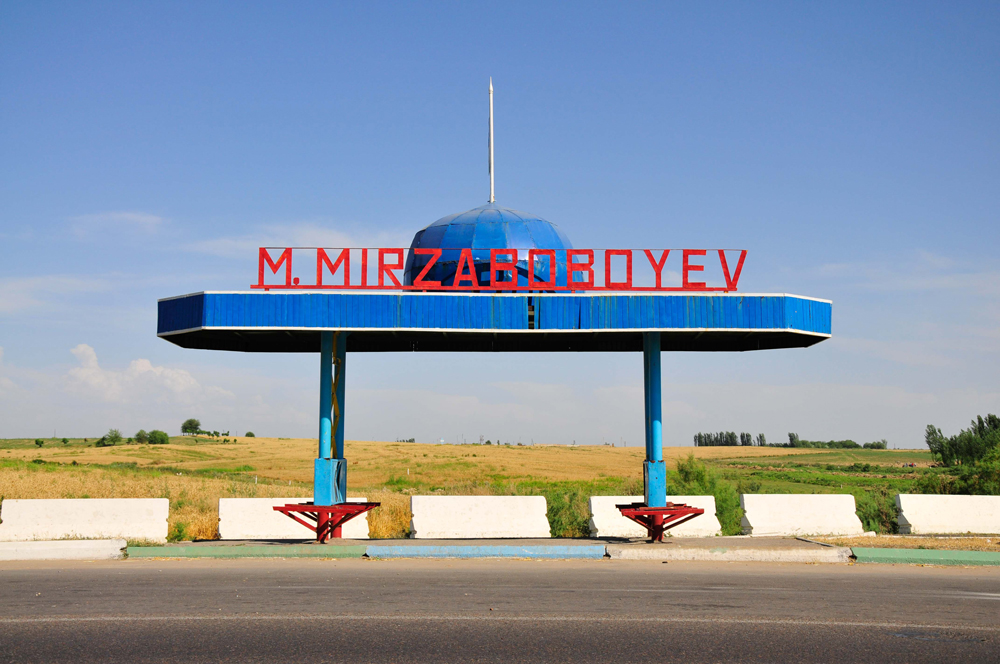
Uzbekistan Image Peter Ortner
‘After a few days on the road, my wife and I saw that these extraordinary structures, micro-architecture, punctuating the highway, were becoming more and more the focus of our trip. We decided to return, this time just to take photos – the results were so good that it made sense to expand the road trip to take in other Soviet states.’
After Uzbekistan, Kyrgistan, Azerbaijan, Georgia, Armenia, Ukraine and more road trips under his belt, Peter’s photos became the 2016 book Back in the USSR, Soviet Roadside Architecture from Samarkand to Yerevan. It marked the moment Peter became a fan of brutalist architecture.
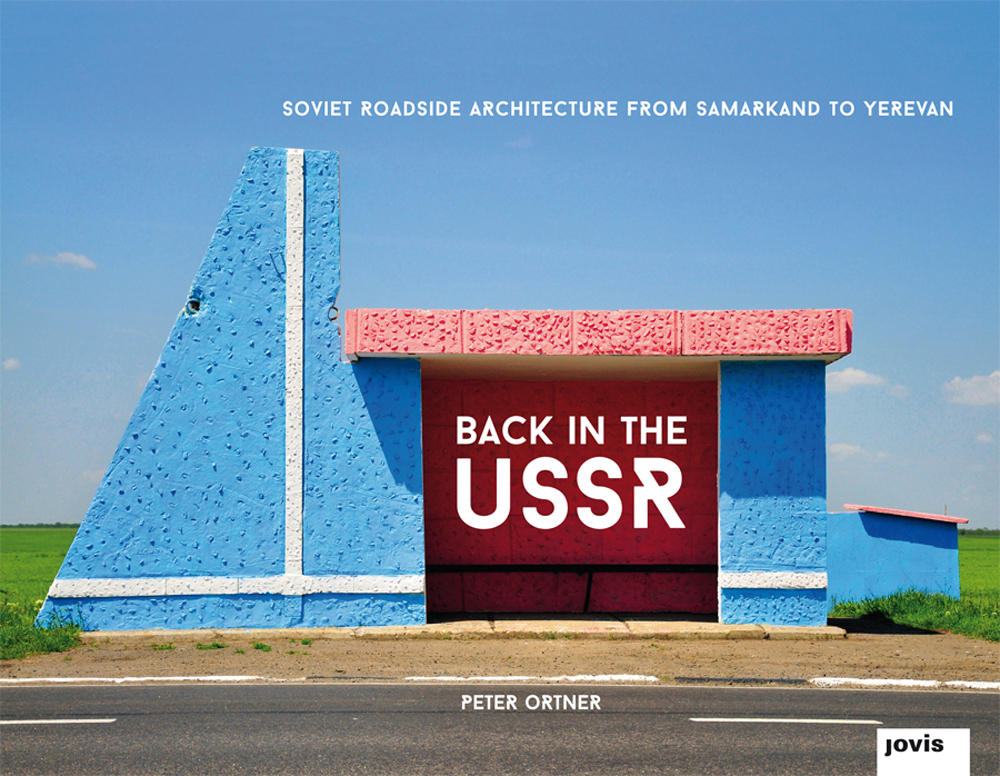
Over the years Peter’s architectural projects have zeroed in on Eastern Europe and the former USSR. While he is still recording the post-Soviet world in transition, he has now circled nearer his home-city Nürnberg in Germany with his latest book about Berlin’s Tegal Airport.
But we aren’t done with Peter’s obsession with soviet bus stops. Maybe it’s because we have a fascination, too. They are a look into another world far different from ours, something ordinary, recognisable but actually exotic, mysterious, often adorned with incomprehensible details.
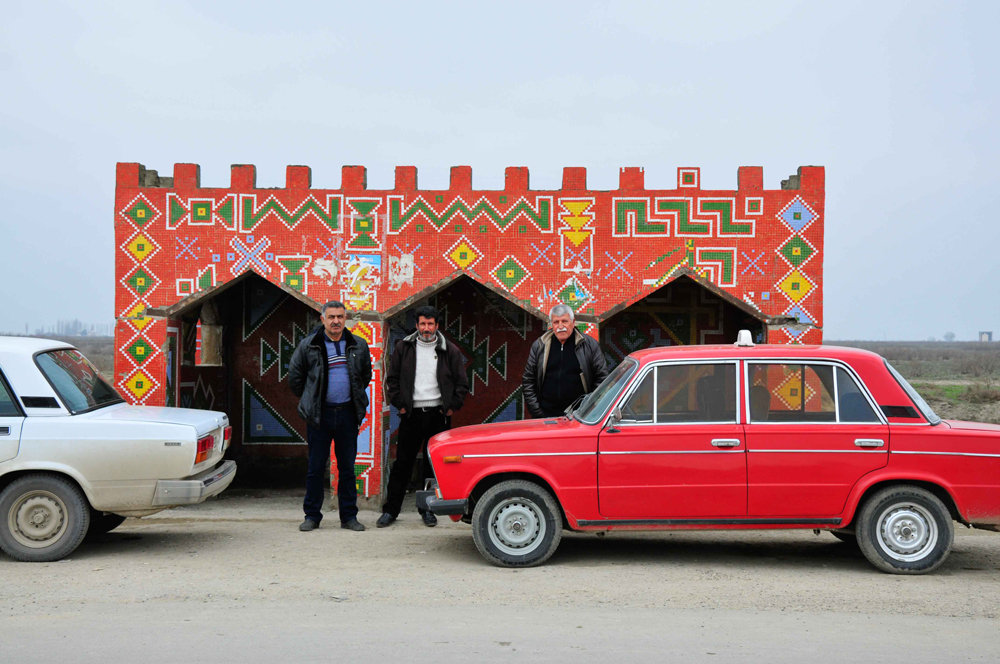
Azerbaijan, Soviet Bus Stop Peter Ortner
Every country has a public transport system. And what do we all do at bus stops regardless of whether they are in the centre of a highly developed western city or several hours from downtown Samarkand? We wait and we wait. But in these bus stops, painstakingly photographed by Peter we get a glimpse of other lives and aspirations.
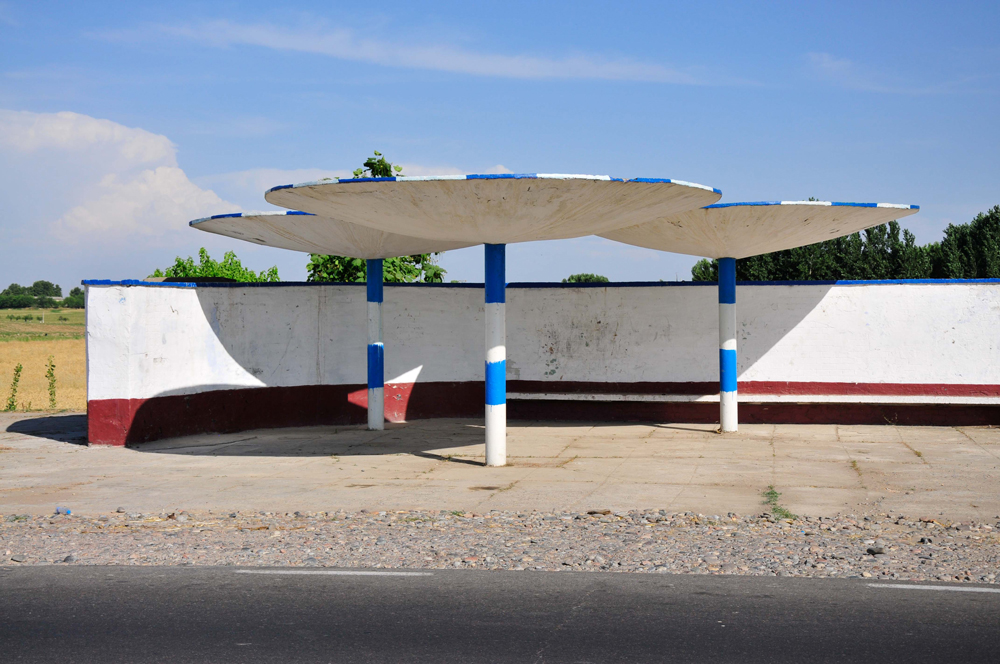
Uzbek bus stop Image Peter Ortner
Peter notes, ‘I saw the project in its entirety, the photos were always connected in my mind, almost like a continually flowing row of buildings. This is my sweet spot, a place where documentary photography and art meet. Compared to our western, utilitarian waiting spaces, Soviet bus stops are pure punk and in them, I found something that fed my obsession for design. They frequently reference local styles and history and the mosaic decorations give a fascinating insight into what is of importance locally. The Soviet Union was unwieldy and centralised. The bus stops seem to represent some freedom of expression and a kind of innocence. I like to think of them as small houses with all the character and identity that a home has but in this instance in the form of a non-place, a place where people meet and shelter.’
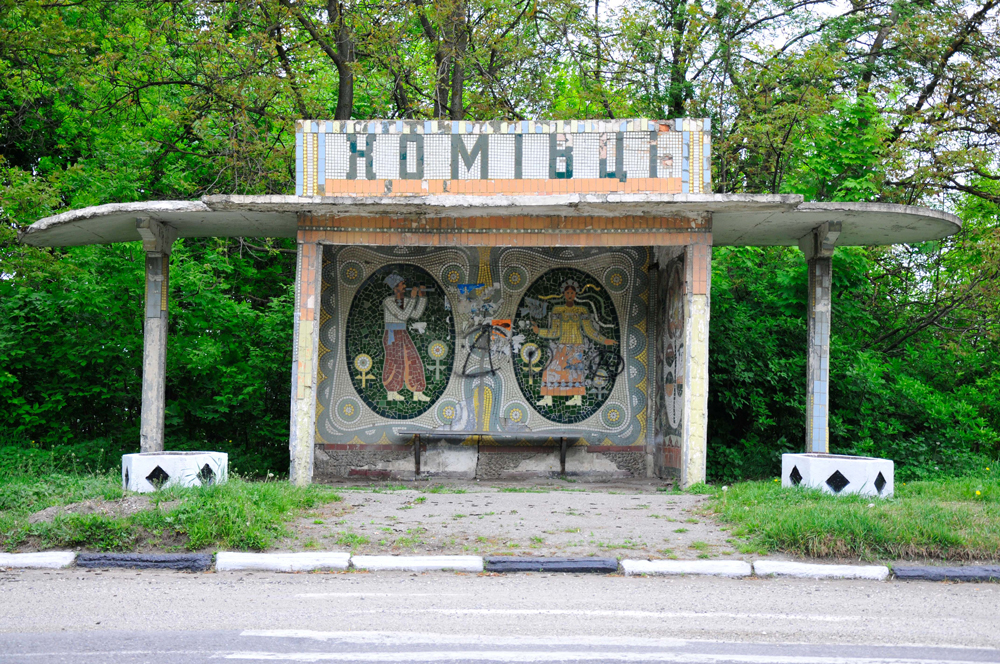
Ukraine bus stop Image Peter Ortner
‘I don’t shrink away from showing decay if that is what allows the viewer to get a sense of the essence, the aura of a building. But it is important to understand that this is not what I am trying to capture, I want to go past details such as a lack of maintenance or a run-down neighbourhood – how it plays out is that some photos don’t show the whole, instead just a segment or detail’.
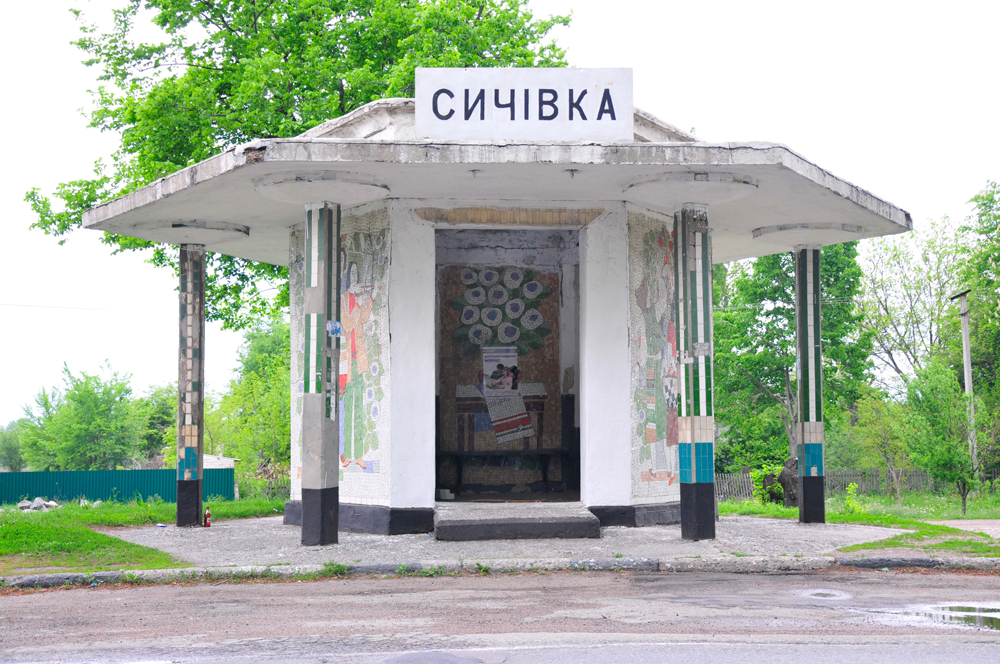
Ukraine Image Peter Ortner
Peter chooses his subjects carefully, there’s much background reading in advance – practical stuff like accessibility, weather and direction of the sun play an important role. Coupled with that is trying to find a good example of an architectural style such as Polish Constructivism or the architecture of Skopje.
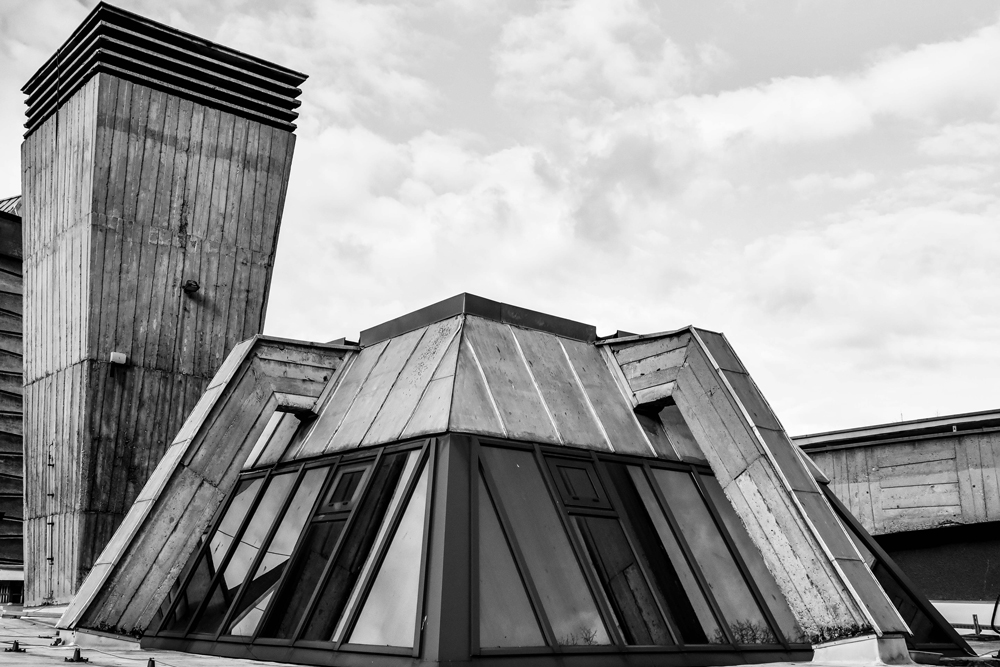
Wroclaw Image Peter Ortner
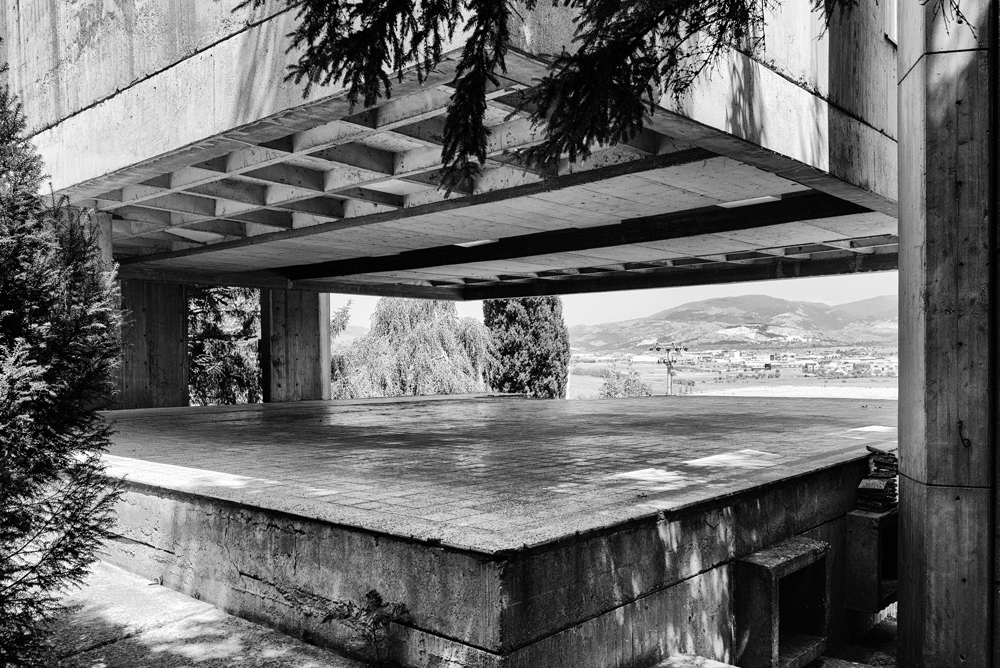
Macedonia Image Peter Ortner
Apart from all the challenges of photography in public (and often busy) roads, there were encounters with the local police who decided that an on-the-spot fine was in order for wrongly parking or the breaking of an obscure local law. Being ordered at gunpoint to stop photographing and leave immediately was one of his less pleasant experiences (he came back later:-)!
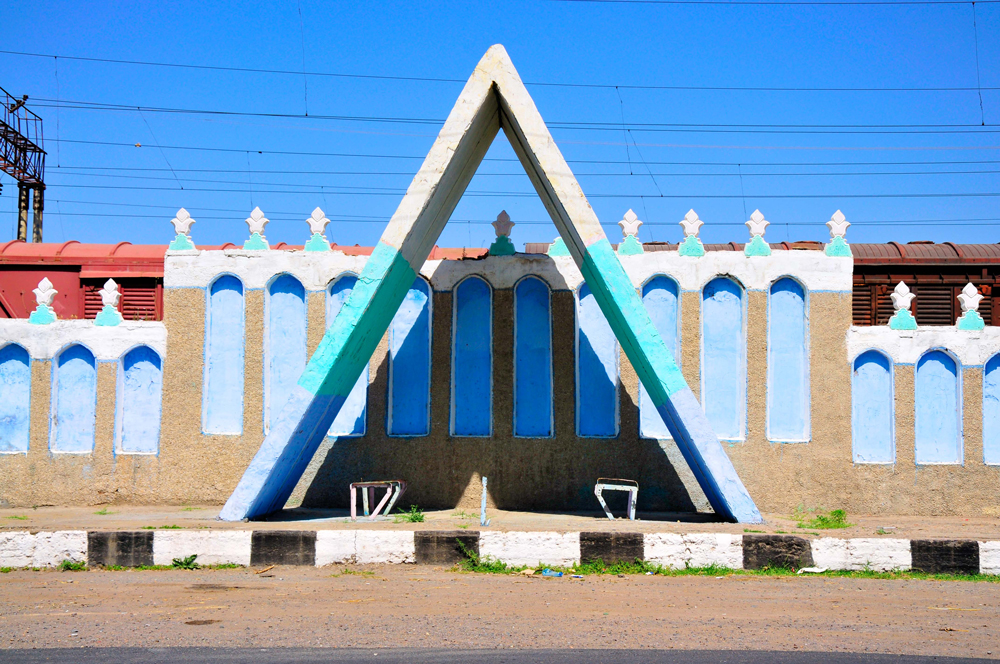
Uzbekistan Bus Stop Image Peter Ortner
Peter’s new book The Essence of Berlin features the old Berlin Tegel airport, which closes in 2020. Tegel although outdated played a distinguished role in the Berlin Airlift while having a darker history in German military rocket development. And this is surely Peter’s sweet spot, preserving and documenting in photographs buildings that have been part of the fabric of a society and deserve to be admired as well as remembered.
Greyscape Quickfire:
How would you recommend planning for this kind of trip?
Always plan ahead – do a lot of reading in preparation – DOM publishers are excellent on the topic and Owen Hatherly’s, Landscapes of Communism
Where do you recommend visiting?
For a starter, short trip, I’d say Moscow or Kyiv. If you want to go up a notch then plan for a multi-centred Central Asian trip. The Balkans are also an excellent choice and especially the former Yugoslavia. Next on my bucket list is Minsk in Belarus (although right now it is hard to plan).
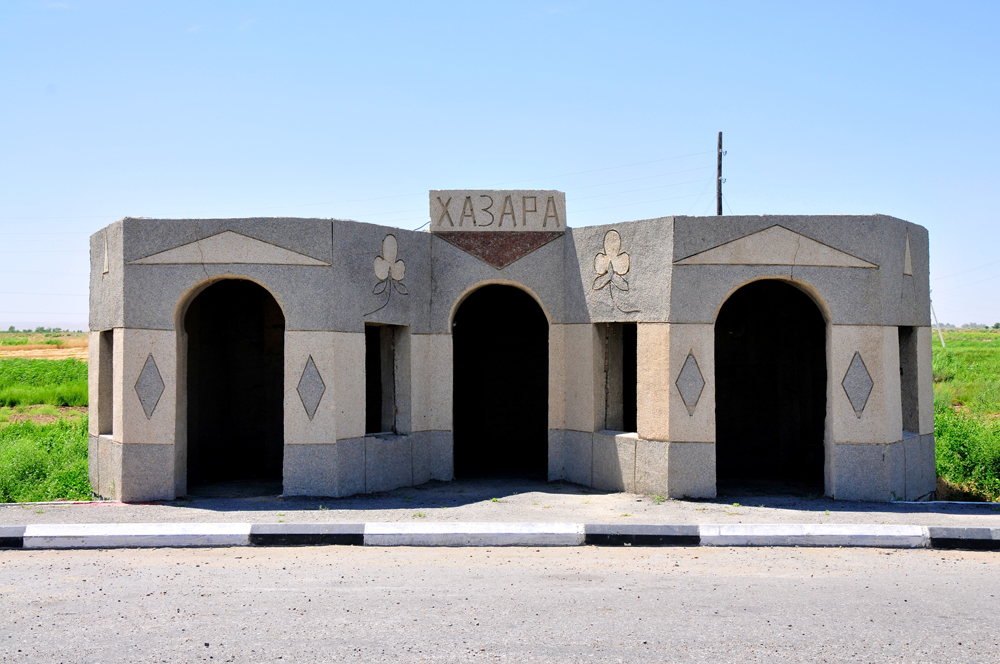
Uzbekistan, Soviet Bus Stop Peter Ortner
What are you planning next?
I really would like to put together a series about Brutalist churches. Next stop on my list, whenever possible would be Minsk in Belarus.
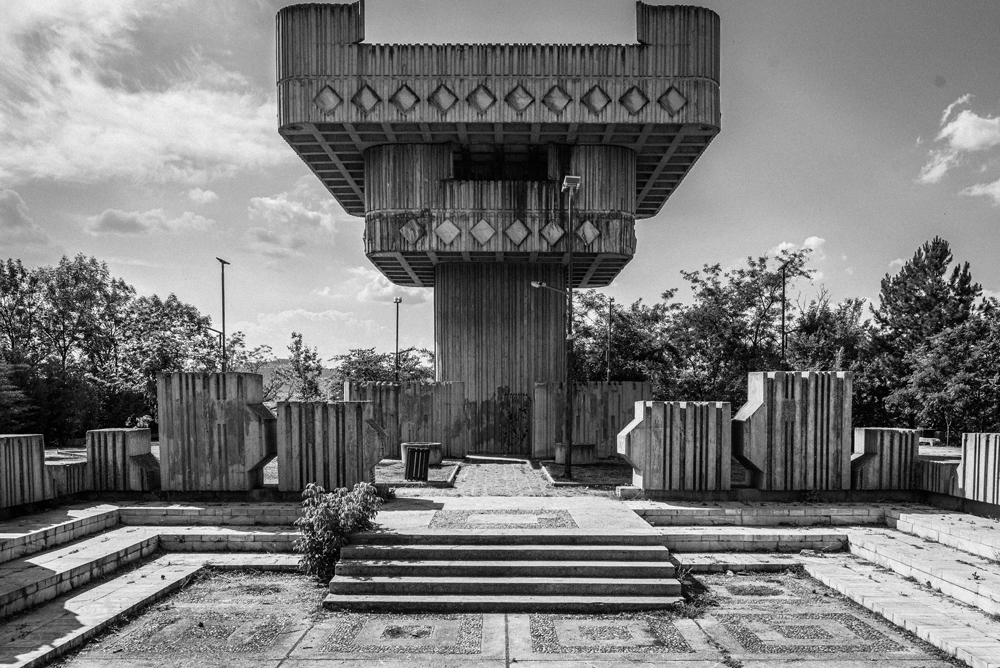
Macedonia Image Peter Ortner
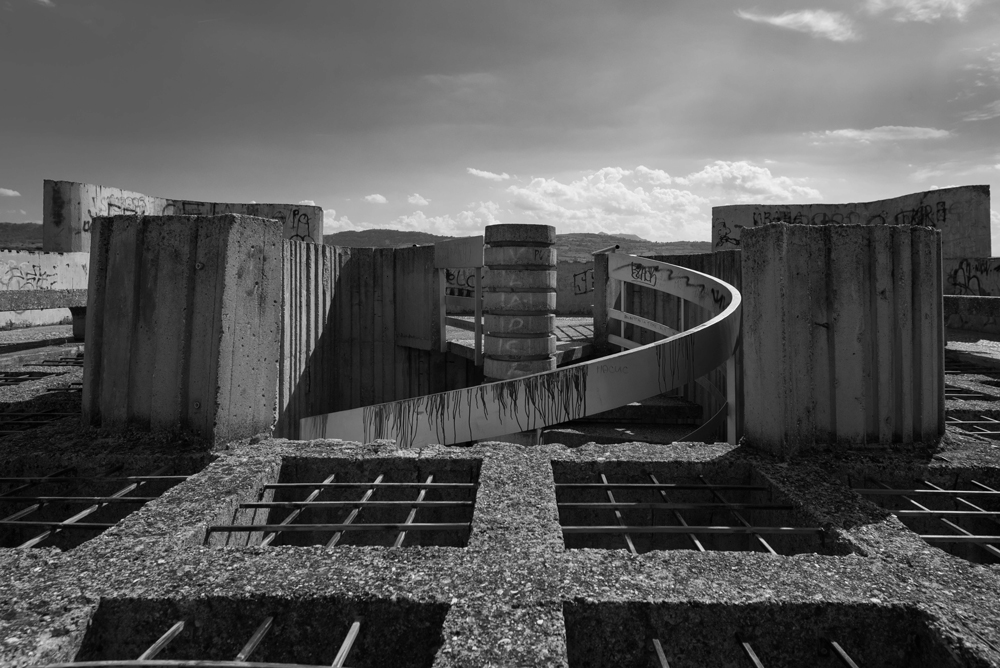
Macedonia Image Peter Ortner
Catching up with Peter Ortner:
Website: freilichter.de
Instagram: https://www.instagram.com/freilichter/
Read his publication:
Back in the USSR, Soviet Roadside Architecture from Samarkand to Yerevan, Jovis publishers
The Essence of Berlin Tergal https://www.jovis.de/de/buecher/product/the-essence-of-berlin-tegel.html
All images the Copyright of Peter Ortner
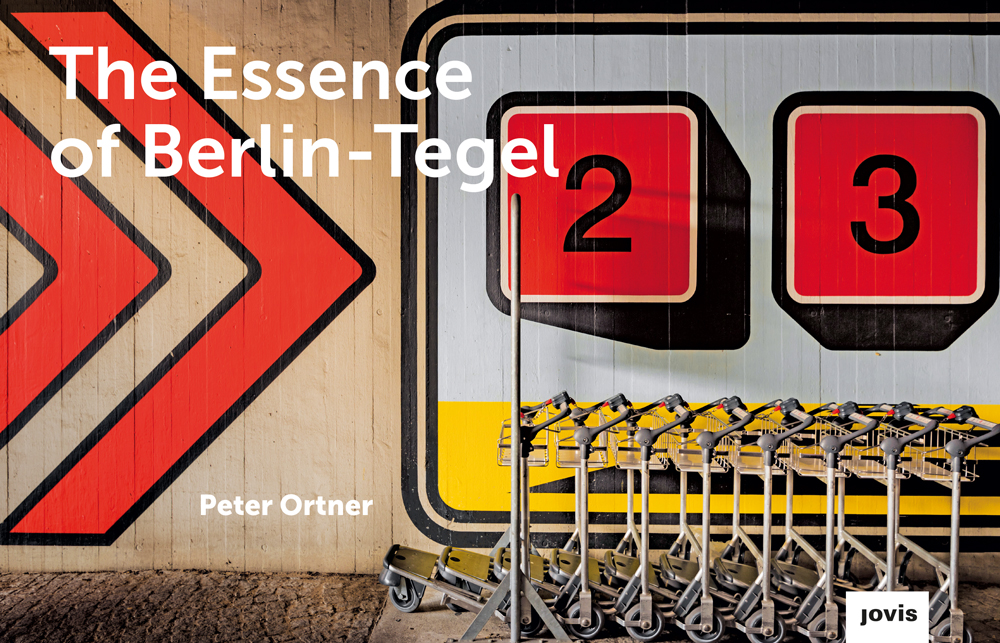
The Essence of Berlin Tegel Peter Ortner




